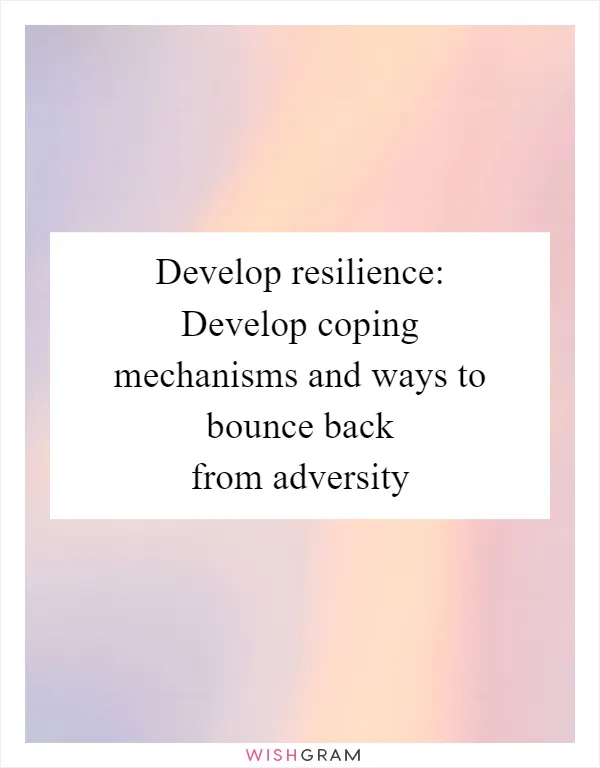Develop resilience: Develop coping mechanisms and ways to bounce back from adversity
Developing resilience is an essential skill that can help us navigate through life's challenges and bounce back from adversity. It involves building coping mechanisms and strategies that enable us to adapt and recover from difficult situations. Resilience is not about being invincible or never experiencing setbacks; instead, it's about developing the ability to recover and grow stronger in the face of adversity.
One way to develop resilience is by cultivating a positive mindset. Focusing on the positives, even in challenging times, can help us maintain a sense of hope and optimism. It's important to acknowledge our emotions and allow ourselves to feel them, but also to remind ourselves that setbacks are temporary and that we have the strength to overcome them.
Another key aspect of resilience is building a strong support system. Surrounding ourselves with people who uplift and encourage us can make a significant difference in our ability to bounce back from adversity. Whether it's friends, family, or mentors, having a support network that we can rely on during tough times can provide us with the emotional support and guidance we need.
Additionally, developing effective problem-solving skills can enhance our resilience. When faced with challenges, it's important to approach them with a solution-oriented mindset. Breaking down problems into smaller, manageable steps can make them feel less overwhelming and increase our confidence in finding solutions. Seeking advice from others who have faced similar situations can also provide valuable insights and strategies.
Taking care of our physical and mental well-being is another crucial aspect of building resilience. Engaging in regular exercise, eating a balanced diet, and getting enough sleep can help us maintain our energy levels and overall health. Additionally, practicing self-care activities such as meditation, journaling, or engaging in hobbies can help reduce stress and promote emotional well-being.
It's important to remember that resilience is not built overnight; it's a lifelong journey. Each setback we face provides an opportunity for growth and learning. By reflecting on our experiences and identifying the strategies that worked for us in the past, we can continue to develop our resilience and become better equipped to handle future challenges.
